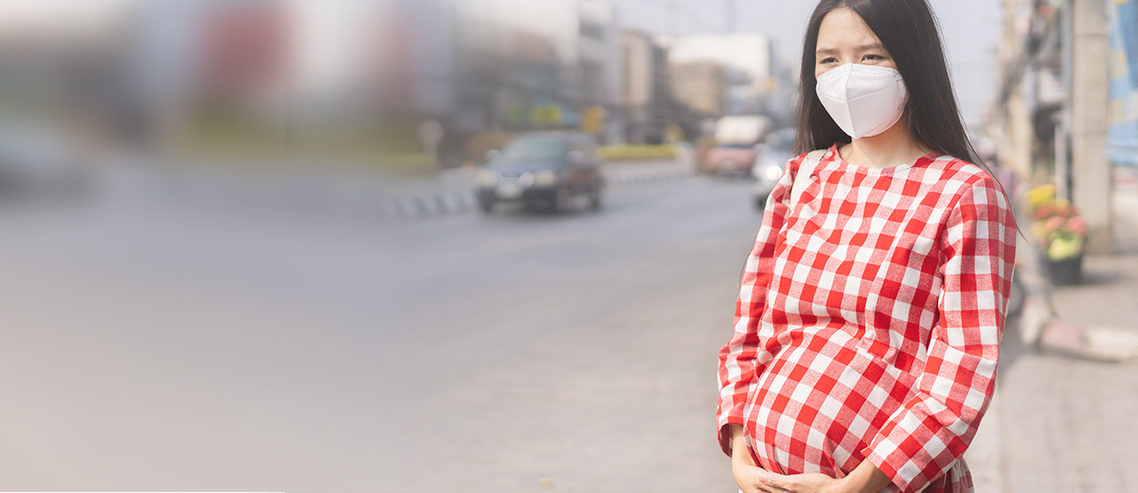What pregnant women should know about the coronavirus
Giving birth to a baby is hard work, and it is especially so in the midst of the global COVID-19 pandemic. While the knowledge about the novel coronavirus is still evolving and there are still many uncertainties, maternity services, unlike other parts of healthcare, cannot be postponed or cancelled. That’s why it is imperative for pregnant women to take extra precautions to minimize their health risks.
In this Pacific Prime Thailand article, we will offer advice and answers to some of the most common questions many pregnant women are asking during the coronavirus pandemic.
Do pregnant women face greater risk from COVID-19?
As yet, there is little evidence that suggests pregnant women are more susceptible to the virus than the general population.
However, as we have seen from the example of flu, if pregnant women are suffering from respiratory symptoms, they are indeed at great risk of harm. It is because pregnancy will cause a slight change in the body and weaken the immune system, particularly during the third trimester (28 weeks onwards), leading to more injury and damage in case of infection.
Does having the coronavirus create a greater risk of miscarriage?
No studies have been done yet to show if contracting with COVID-19 during pregnancy increase the chance of miscarriage, preterm labour or birth defects.
However, during the SARS epidemic, infected women were found to have a slightly higher risk of miscarriage. Studies have also shown that respiratory viral infections are associated with low birth weight and preterm birth. Also, a high fever early in pregnancy may increase the risk of certain birth defects, albeit the overall occurrence of those defects is still low.
Hence, if you do contract the virus, especially in early pregnancy (between 4 and 6 weeks in pregnancy), what you should be concerned about is developing a high fever, as it may affect the way the cells in the fetus divide and may increase the risk of problems with the baby’s spine and brain.
Can a mother with COVID-19 pass the virus to her baby in the womb?
Scientists have yet to find an answer to this question.
On one hand, some studies found coronavirus antibodies in the newborns of mothers with COVID-19, which could mean there are viruses in the womb.
On the other hand, other earlier research showed no evidence of COVID-19 in the amniotic fluid or cord blood of other infants born to infected women. The lack of vertical transmission is also consistent with what is seen from other common respiratory viral illnesses in pregnancy, such as influenza.
Although there are some other cases of newborns as young as a few days with infections, it is believed that these infants caught the virus through close contact with the mother or a family member after delivery.
What should pregnant women do?
Pregnant women should definitely take the same, if not stricter, precautions as everyone else, including practising social distancing, keeping excellent hygiene, and staying at home. Keep your home and your baby’s nursery clean. Talk to your obstetrician to see if it is possible to turn some of your prenatal visits to virtual ones so that you can avoid the need to go to the hospital.
It’s also a smart move to get copies of your health records in advance so that in the event of service disruption, you still have a record of your prenatal care.
If you’ve shown signs of COVID-19 or are in self-isolation, you should avoid attending antenatal appointments, inform your midwife, and follow guidance about when to seek medical assistance.
Can I breastfeed my baby if I have COVID-19?
Again, no evidence of the virus has been found in the breast milk of women infected with the coronavirus. However, temporary separation after delivery is still recommended to minimize the health risks of newborns. During that time, women can pump their breast milk to establish and maintain milk supply, and ask someone healthy to feed the baby. After all, breastfeeding is a crucial source of antibody protection for infants.
Contact Pacific Prime to learn more
Certainly, there will be a certain degree of disruption to your original maternity care amid the COVID-19 epidemic. While it is very natural to feel stressed and lonely during self-isolation, you should learn how to manage anxiety and take care of your mental health. Read more about “How to maintain mental health during the COVID-19 outbreak” here.
Additionally, if you are an expat living or working in the Land of Smiles, you may be interested in reading our “short guide to expats in Thailand during coronavirus outbreak” and “Your employee rights during the coronavirus outbreak.”
As an award-winning insurance brokerage with over 20 years of experience, Pacific Prime Thailand specializes in expat health insurance, maternity insurance, company health insurance, and more. Contact our specialists today for a free quote or plan comparison!
- How much do COVID-19 tests cost for expats in Bangkok, Thailand? (Updated January 2023) - January 6, 2023
- How to maintain relationships in self-isolation - August 2, 2021
- The latest dine-in restrictions in Thailand - May 6, 2021





Comments
Comments for this post are closed.
We'll notify you
when our team replies!